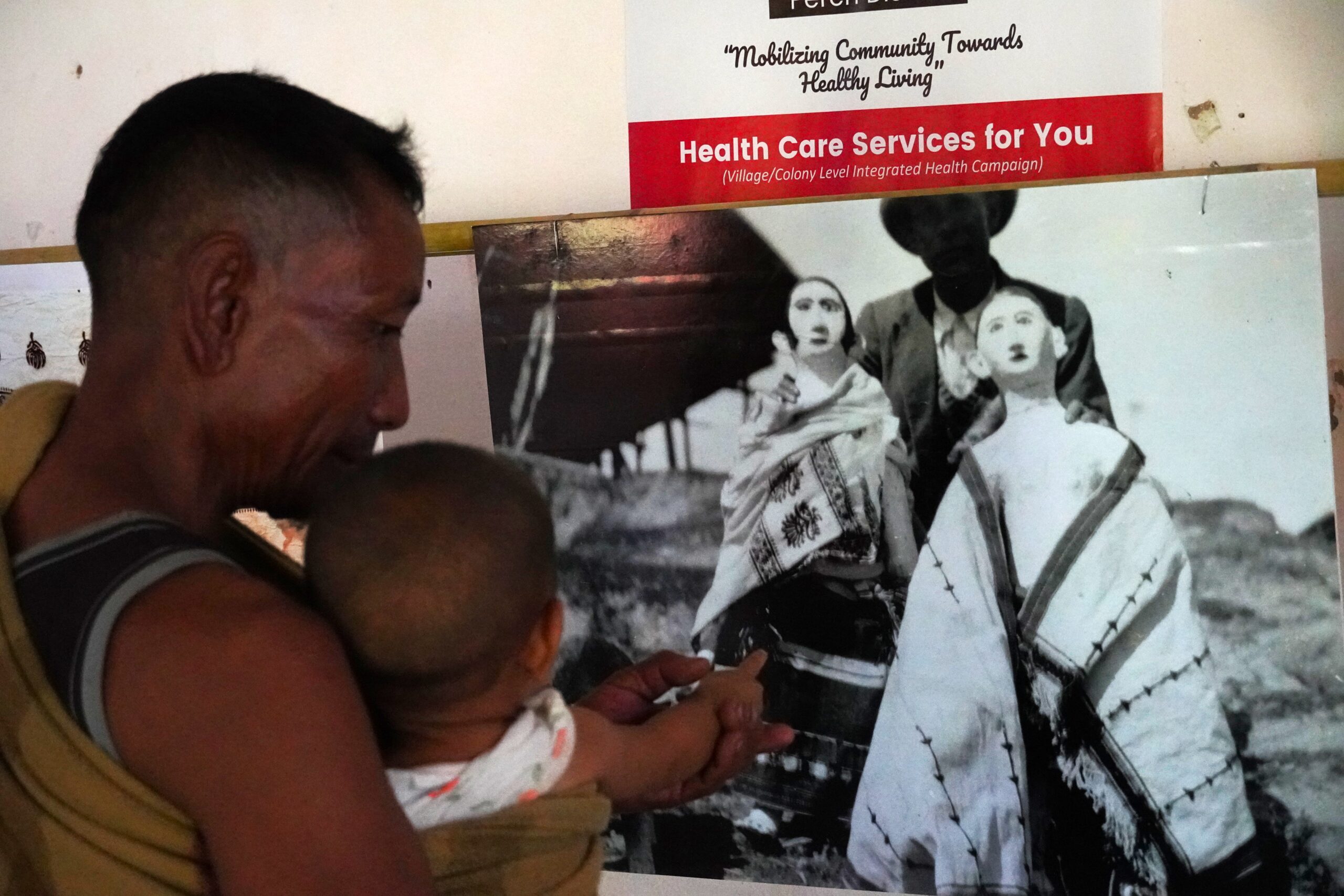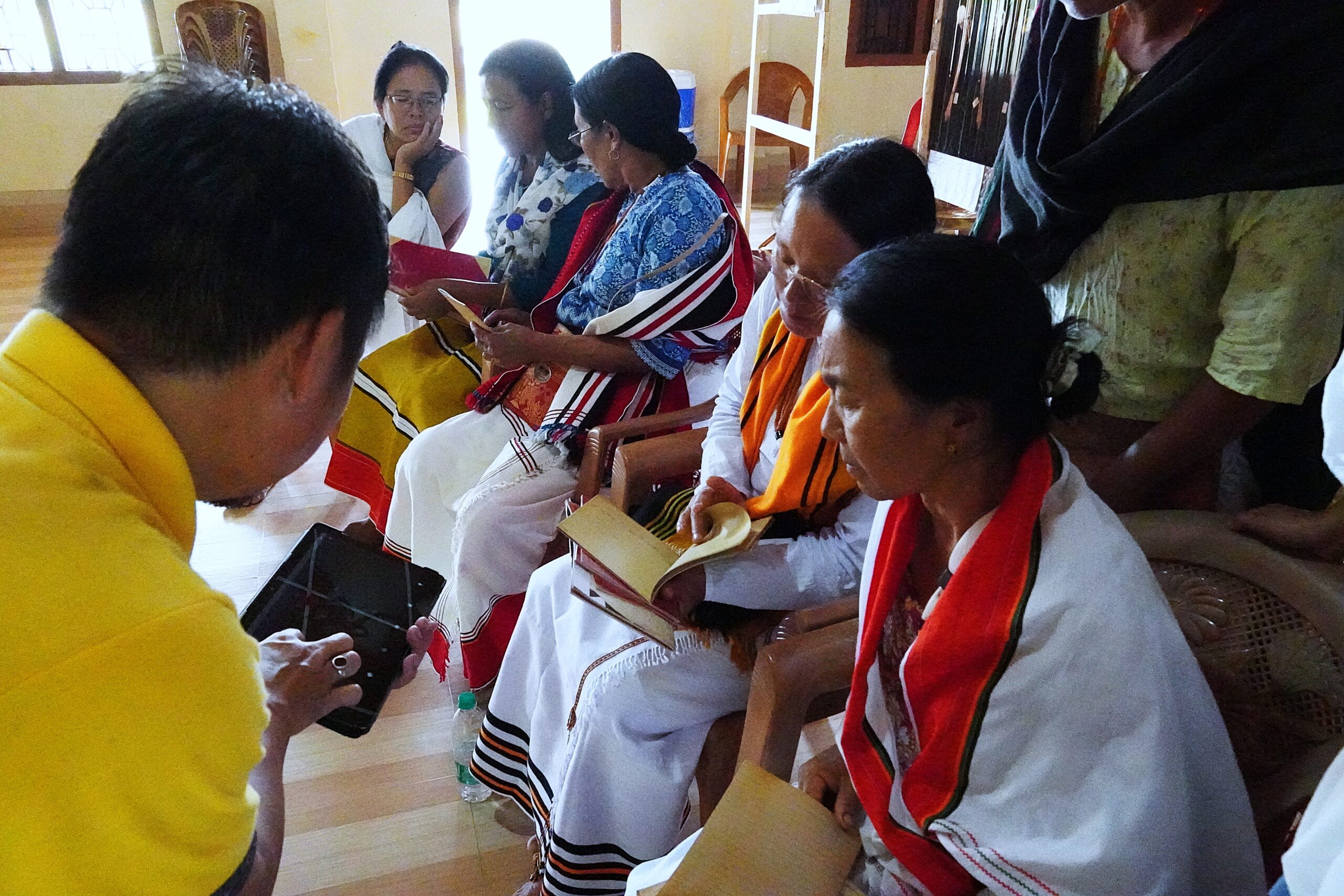Community-Curated Workshops
As part of the project’s collaborative activities, we conducted 18 community-curated workshop sessions in the towns of Haflong, Tening, Jalukie, and Dimapur. Almost 150 people participated in these sessions, including community elders, religious organisations, civil society groups, activists, researchers, artisans, and students. Organised as focussed group discussions, the sessions sought to elicit responses about the historical and cultural significance of the Gaidinliu Collection, the ethics and politics of repatriation, the pedagogical value of digital collections, the public perception of Gaidinliu, and her place in the construction of Zeliangrong ethnic identity and political assertion.
A dominant theme that emerged from the discussions was the historical significance of Gaidinliu as a political leader of the Zeliangrong people, an anti-colonial rebel, and a cultural reformer whose work was significant for her religious Heraka adherents, but also for Zeliangrong people of all faiths. Questions about digital technological access, privacy, ownership of data and the limitations of digital publics were all matters of concern for the participants. At the same time, some were also cautiously optimistic about the use of digital replicas for pedagogical purposes.
These sessions often saw participants coming from distant places. Despite the difficulties of road travel, many elderly community members visited the exhibition to participate in the workshop discussions. Often people who had themselves met Gaidinliu, they travelled long distances to look at the collection of her personal objects. During discussions, they closely went through the catalogue to learn all the information about the artefacts. In addition to looking at the collection, they were also eager to talk about their own encounters with Gaidinliu. These accounts would range from reminisces about a brief encounter seeking her blessings, to an evening of stories from a lady who had been Gaidinliu’s personal assistant as a young girl. In these discussions, it became evident that these workshop sessions bore significance as a moment of witnessing and bearing witness. They saw themselves in some way as guardians of an oral history of Gaidinliu—it was important for them to share their knowledge as well as witness these new artefacts to ensure that they become part of her remembered story as well.
These collaborative workshop sessions became moments of sharing of knowledge, memories, and experience that allowed the project to became a part of the cultural landscape evoked by the name of Gaidinliu. At the same time, it afforded moments of critical reflection upon the notion of digital repatriation itself.





